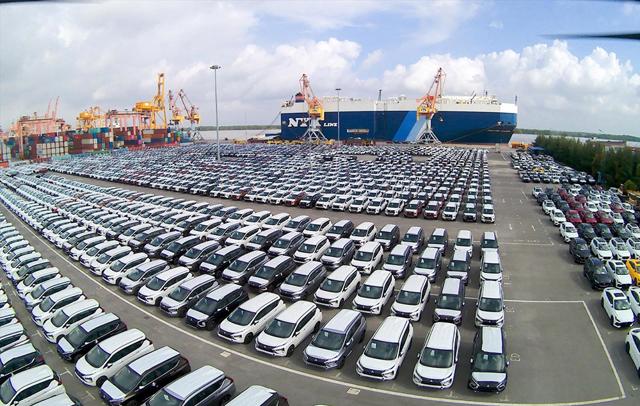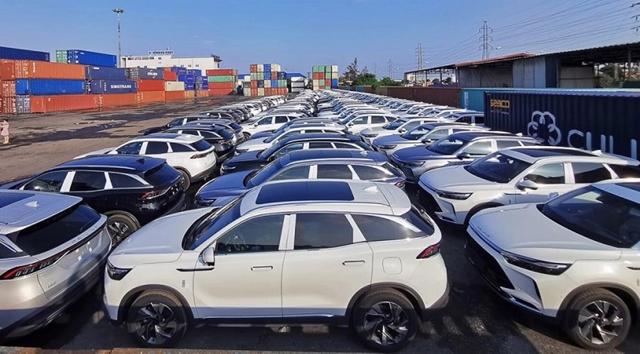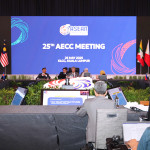Total number of posts 463.
As of August 8, Vietnam has signed 2023 FTAs and is recognized by the world as an open economy. However, tariff policies, legal corridors in the field of automobiles and imported components and spare parts have not really balanced between markets. It takes more time for Vietnam to realize its committed terms, contributing to boosting trade and investment relations with other countries.
Aim for zero import duties by 0

Import turnover of cars under 9 seats increased slightly. Artwork: VNA
According to the Ministry of Industry and Trade, in the first 8 months of 2023, the import turnover of goods is estimated at 207.52 billion USD, down 16.2% over the same period last year. In particular, import turnover of goods to be controlled decreased by 16.7%, reaching 12.16 billion USD. The decline was clearly recorded in commodities such as iron and steel scrap, precious stones, precious metals and products, components, auto parts... In contrast, a small number of items with increased turnover were complete cars under 9 seats (up 3.6%).
In terms of supply market, Vietnam mainly imports CBU cars from Asian countries. Statistics of the General Department of Customs in 2022 show that Indonesia and Thailand are the two largest export markets to Vietnam with market shares of 41.9% and 41.5% respectively; China accounts for 10%; other countries such as the US, EU ... accounting for 6.6%. Similarly, for automobile components and spare parts, Vietnam mainly imports from Korea, China, ASEAN countries and Japan. In particular, Korea is the largest import market of Vietnam, accounting for 26% of the total import turnover of this commodity group of the country. EU countries account for only a very small market share (about 1.83%).
The reason for this disparity, in addition to the advantages of geographical location and credibility in bilateral and multilateral relations, is still more important is preferential tariff policies.
Specifically, for ASEAN countries, Vietnam is imposing 0% tariffs until the end of 2027 for auto components and spare parts under the ASEAN Trade in Goods Agreement (ATIGA). In relations with Korea, according to the Government's Decree No. 125/2022/ND-CP, many components and spare parts imported from Korea are also subject to a tax rate of 0% from 2022.
Meanwhile, the tax rate on imported auto components and parts from 27 EU countries is still quite high. According to the Free Trade Agreement between Vietnam and the European Union (EVFTA), the Free Trade Agreement between Vietnam and the United Kingdom of Great Britain and Northern Ireland (UKVFTA), the policy on import tax rates is gradually adjusted downwards from 2022 to 2027. For example, according to EVFTA, in 2023, spark plugs and tires are being imposed tariffs of 5% and 12.5%, respectively. By 2027, these products will receive a tax reduction to 0%, which means 5 years later than Korea and ASEAN. Under the UKVFTA, some products will be subject to zero percent tariffs earlier from 0.
Particularly for CBU vehicles, Vietnam is imposing 0% import tax on vehicles made in Thailand and Indonesia; while cars imported from France, Germany and Italy are still imposing import duties of 56-74%.
Strengthening policies to support customs clearance

Complete the legal corridor, create a basis for implementing the provisions of the FTA that Vietnam has joined and signed. Artwork: Internet
Clause 5, Article 7.5 of the EVFTA stipulates: If a Party requests an inspection report, including that report alone as a basis, or in combination with other standard conformity assurance measures, or to ensure that a product complies with the corresponding standards or technical regulations, The Party shall endeavour to accept inspection reports in the form of the International Electrotechnical Commission System on Conformity Assessment Mechanism for Electrotechnical Equipment and Components Test Reports (IECEE CB Mechanism) without requiring any other testing.
Paragraph 6, Article 7.5 provides: If a Party requests a certificate from a 3rd party for a product, that Party shall endeavour to accept a CB Test Certificate under the IECEE CB mechanism as a measure of conformity without requiring any conformity assessment or other administrative procedures or approvals.
Thus, in accordance with the spirit of the Agreement, the importing country will have to acknowledge the results of testing and certification in the exporting country. This provision helps facilitate imports of goods from countries parties to the Agreement.
To implement the Agreement, on August 16, 2023, the Government has issued Decree No. 60/2023/ND-CP stipulating the inspection and certification of technical safety quality and environmental protection of imported automobiles and components under international treaties to which Vietnam is a signatory. The legal basis is EVFTA and UKVFTA that Vietnam signed on August 1, 2020. According to Decree 60, in the inspection procedures, imports of cars of group M1 (imported cars of unused complete units) and components and spare parts of M1 cars manufactured in the EU, UK and tested and certified in the EU and UK satisfying the regulations of ECE and EC will be prioritized for customs clearance. This regulation does not apply to imported automobiles and automobile components imported for defense and security purposes according to plans approved by the Prime Minister.
Decree 60 takes effect from October 01, 2023 and applies specifically to the following subjects: For components, from the effective date of this Decree; For cars, as of August 1, 2025.
According to EVFTA, in the coming time, after signing the 1958 UNECE Agreement, Vietnam will accept UNECE valid type certification labels attached to spare parts and equipment imported from the EU and UK. In contrast, Vietnamese components and spare parts manufactured if they meet ENECE standards will also be cleared through customs in the EU and UK. This is a win-win provision. Currently, Vietnam's components and spare parts are applying ISO, IATF 16949: 2016.
Thus, the promulgation of legal documents to support the implementation of provisions in FTAs is very necessary, demonstrating the commitment by actions of the Government of Vietnam to countries and regions around the world.
According to ZF Aftermarket, although there is a difference in import tax rates by country, the room to develop the automobile market and auto components and spare parts in Vietnam is still very large. In the next 5 years, the number of new cars on Vietnam's roads is forecast to increase by 10%. 2027 is also the time when a series of cars in Vietnam come to the overhaul period, after a boom in automobile sales in 2022. That is, by 2027, the demand for procurement of auto components and spare parts will be huge. The opportunity will be for all businesses and investors. And obviously, the more open the policy, the more boldly businesses will invest there.














